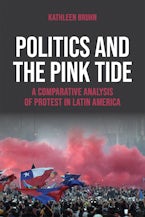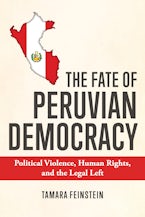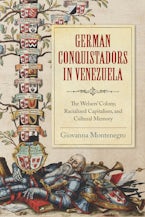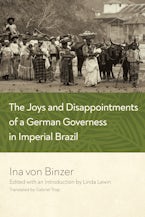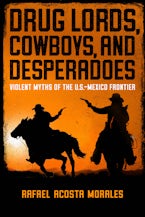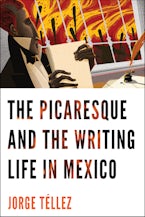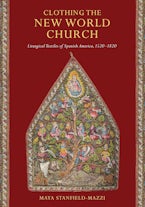The struggles by Indigenous peoples that emerged across the region in the 1990s provide further examples of the discursive use of the notion of inclusive citizenship; employed to widen the scope of social movement’s claims, moving beyond claims for a specific minority group to include the marginalized more generally (Yashar 2005). Among them is certainly Subcomandante Marcos’ Ejército Zapatista de Liberación Nacional in Mexico (Zapatista Army of National Liberation, EZLN), or the so-called Zapatistas, which remains one of the most internationally recognized Indigenous movements of the region. On the eve of the implementation of the North American Free Trade Agreement (NAFTA) in January of 1994, a group of indigenous people led by Marcos emerged from the jungle and seized the city of San Cristobal de las Casas in Chiapas, rebelling against the seventy years of rule by the Partido de la Revolución Institucional (Institutional Revolutionary Party, PRI) and neoliberalism (Stephen and Collier 1997). Entrenched in historical struggles by indigenous people for autonomy and cultural recognition, the movement was indigenous in essence, but in the longer run, as the initial uprising institutionalized itself into a demilitarized social movement, its rhetoric had a wider scope, using the inclusive citizenship language to engage in the Mexican debate on democratization (Gilbreth and Otero 2011). As Marcos puts it in its EZLN’s Fourth Declaration of the Lacandon Jungle: “in the world of the powerful there is no space for anyone but themselves and their servants. In the world we want everyone fits. The nation which we construct is one where all communities and languages fit, where all steps may walk, where all may have laughter, where all may see the dawn” (Subcommandante Marcos 1996).
Thus, through Marcos’ movement, the Indigenous peoples of Chiapas and Oaxaca fought for their collective rights for self-determination and autonomy, but nonetheless saw their struggle for citizenship as part of the struggle of all the marginalized in Mexico and across the world (Kabeer 2005).
Other examples include the urban movements that emerged in the region, especially in slums and favelas. Based in civil society groups who locate their struggles for the expansion of social rights for popular sectors at the neighbourhood level, these movements often resorted to an inclusive citizenship discourse that reached beyond their neighbourhoods to mobilize and bring their voice to public debates on democratization and social justice (Guidry 2003). These include movements of the urban poor that emerged in the 1980s and early 1990s in Chile and Peru (Oxhorn 1995; Roberts 1998).
Similarly, broad references to citizenship can also be found in the struggles for human rights that involved many local, national, and transnational movements, which emerged during and after authoritarian periods in several countries. Raising the issue of societal memory and the victims of state repression, as the Madres y Abuelas de la Plaza de Mayo did in Argentina, for example, they located this debate within the larger scheme of citizenship rights (Jelin 1994). On the one hand, the specific claims for truth, justice, and redress, although specifically related to the human right violations that had taken place during dictatorship, were not only demands about the past, but also looked forward to the future, as the terms Nunca Más (Never Again) make clear. On the other hand, human right claims, which were quickly casted in terms of rights, went beyond the specific violations during authoritarian regimes, looking to construct “a new institutional apparatus to protect human rights more fully and determin[e] the content of the rights to be guarantee” (Jelin 1994, 48). Here, human rights claims converged with claims for the expansion of citizenship, a process that took place not only in Argentina but in other countries in the region as well. As Pérez Esquivel points out (quoted in Jelin 1994), human rights refer not only to the person, but also to “the rights of the people to education, to health, to housing, to political and trade union liberties, to the mass media.” As time passed and human right claims remained in the spotlight, the links to the citizenship regime deepened, and human rights became first and foremost a demand for a fuller and more democratic citizenship (Oxhorn 2001).
In these ways, by the end of the 1990s the question of citizenship regimes—their breadth and depth—became a central issue on the political agenda throughout Latin America. As social movements occupied more space in the public sphere because of their contentious mobilization, they also often became more and more active in the political arena, often closely associated with the emerging (or re-emerging) left political parties. It is in this context that the Left came to power in many Latin American countries in the late 1990s, with the widening and deepening of citizenship regimes at the core of their political agendas for democratic deepening. In fact, as Marxism eroded as an ideological underpinning of the socialist model of development, the Left reinvented itself in Latin America, and anchored its project in a wider social transformation aimed at “deepening democracy” and at “social inclusion” (Roberts 1998). Levitsky and Roberts (2013) defined the New Left as those political actors who, while their political orientations and organizational features vary across countries, generally “seek, as their central programmatic objective, to reduce social and economic inequalities […] and seek to use public authority to redistribute wealth and/or income, erode social hierarchies and strengthen the voice of disadvantaged groups in the political process” (2013, 5).
With this commitment to democratic deepening and social inclusion, the parties of the so-called New Left wave grew as an alternative for the poor, ethnic, or sexual minorities, and other traditionally marginalized sectors of Latin American societies. Left parties built support by nurturing close ties to social movements’ and civil society’s struggles while building electoral support (Brazil, Uruguay, and Bolivia, for example), or emerged in reaction to the incapacity of the neoliberal electoral democracies to incorporate and represent the traditionally marginalized (Venezuela and Ecuador) (see Roberts, this volume). Their discourse and programs were infused with the rhetoric of inclusive citizenship, raising expectations for an extension of the depth and breadth of citizenship regimes once they were elected. More specifically, the focus on equality and solidarity brought hope among their electors and some commentators for a deepening of social rights, and a widening of the scope of citizenship rights to include cultural and human rights. These changes were to be accomplished through participatory and inclusive political processes with the potential of creating a postliberal alternative to neoliberal democracy (Arditi 2008; Cameron, this volume).
(Excerpted from chapter 2)


